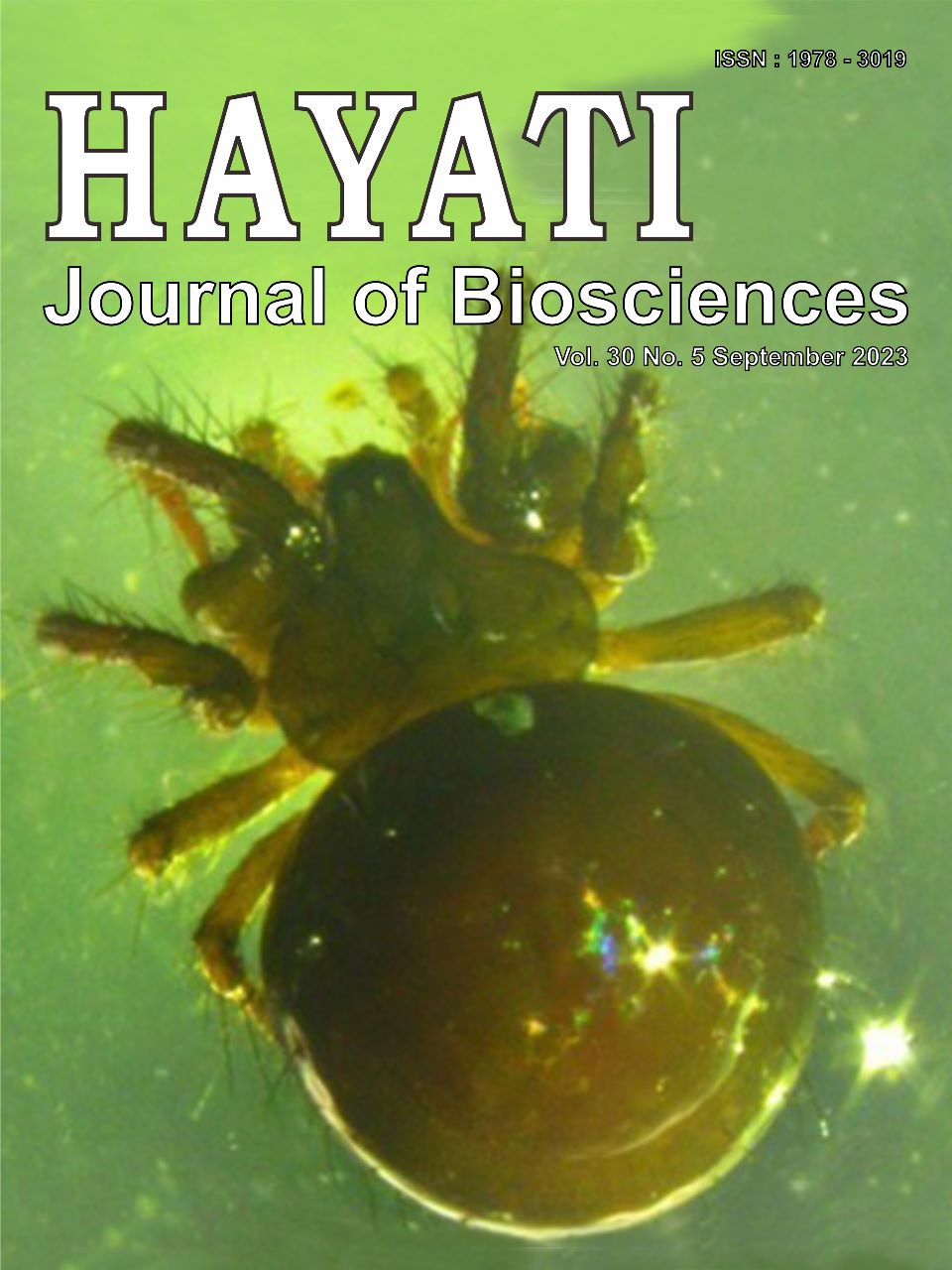Effect of the Supplementation of Endogenous Probiotics in Feed on Growth Performance, Digestive Enzyme Activity, and Non-Specific Immunity Gene Expression of Sandfish, Holothuria scabra Juveniles
DOI:
https://doi.org/10.4308/hjb.30.5.808-815Abstract
The present study aimed to evaluate the effects of endogenous compared to commercial probiotics on the growth, digestive enzyme activity, and non-specific immunity of sandfish juveniles. Treatments were: A. diet without probiotic; B. diet supplemented with endogenous probiotics Gamma proteobacterium strain M-4, Bacillus subtilis strain Q-1, Bacillus sp. strain E-2; C. diet supplemented with a commercial probiotic containing B. subtilis, B. licheniformis, and B. pumilus. The research was conducted for 4 months using 12 plastic containers, 30 juveniles each (initial weight of 2.72±0.37 g, mean ± standard deviation). From each container, ten samples were taken randomly every 14 days and weighed and three intestine samples at initial and every following month to analysis enzyme activities. At the end the study, all juveniles were counted and weighed individually, and performed a challenge test by injected a 106 CFU ml-1 Vibrio azureus strain 4C-1 at 0.1 ml/ind. Immune response observed were: total coelomate and gene expression (SOD, CAT, LZM) by Quantitative real-time PCR. The specific growth rate of juveniles fed by diet B was significantly different from treatment A (P<0.05), its final weight was higher compared to diets A and C (P<0.05). Protease, lipase, and amylase activity in treatment B was higher compared to C and A (P<0.05). The survival rate, total coelomocyte count, gene expression after being challenged were higher in treatment B compared to C and A (P<0.05). The present study showed endogenous probiotics promote growth, improve digestion enzyme activity, and stimulate non-specific immune responses.
Downloads
Downloads
Published
Issue
Section
License
HAYATI J Biosci is an open access journal and the article's license is CC-BY-NC. This license lets others distribute, remix, tweak, and build upon author's work, as long as they credit the original creation. Authors retain copyright and grant the journal/publisher non exclusive publishing rights with the work simultaneously licensed under a https://creativecommons.org/






















.png) Bogor Agricultural University
Bogor Agricultural University Department of Biology
Department of Biology The Indonesian Biological Society
The Indonesian Biological Society 

